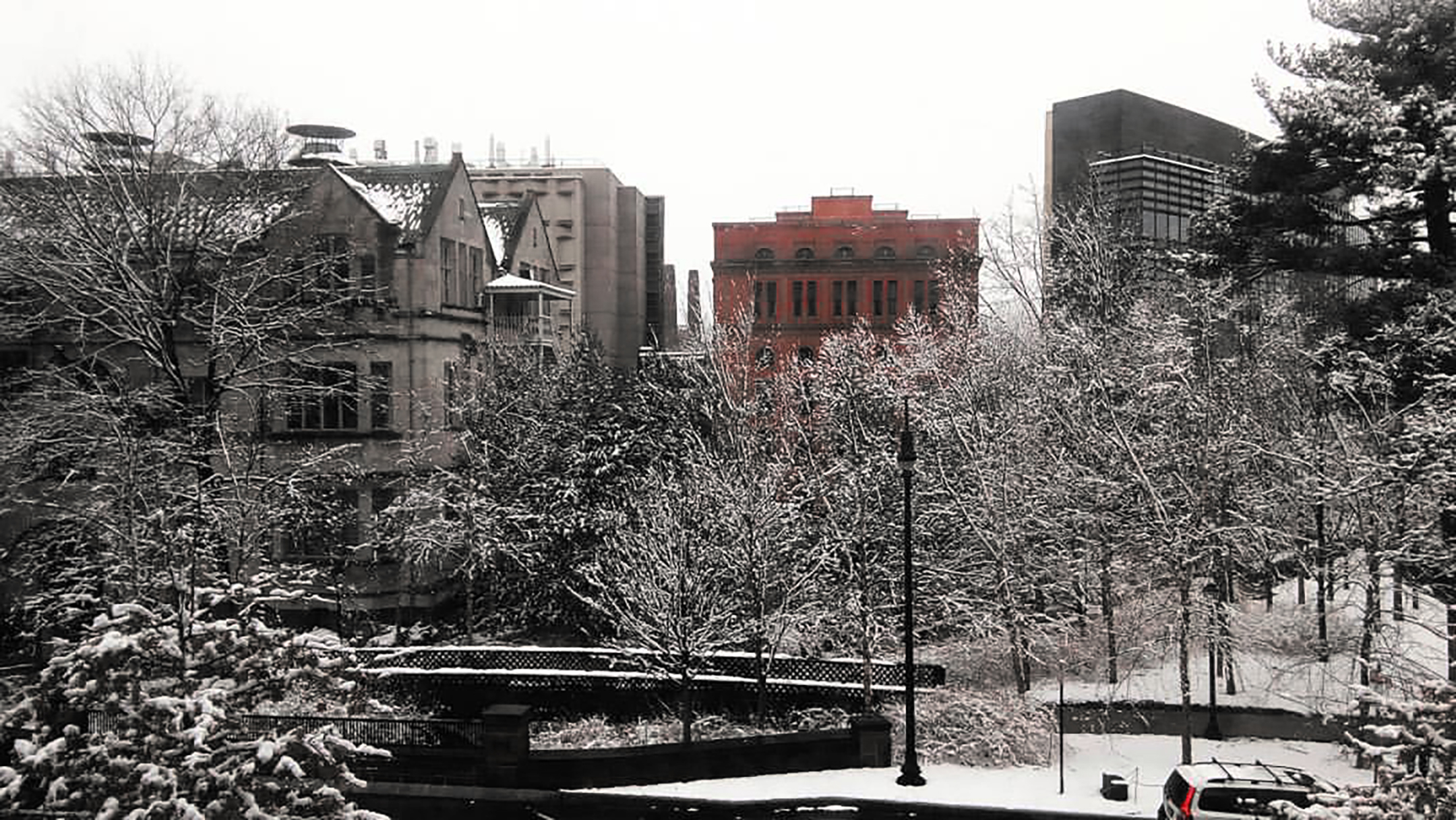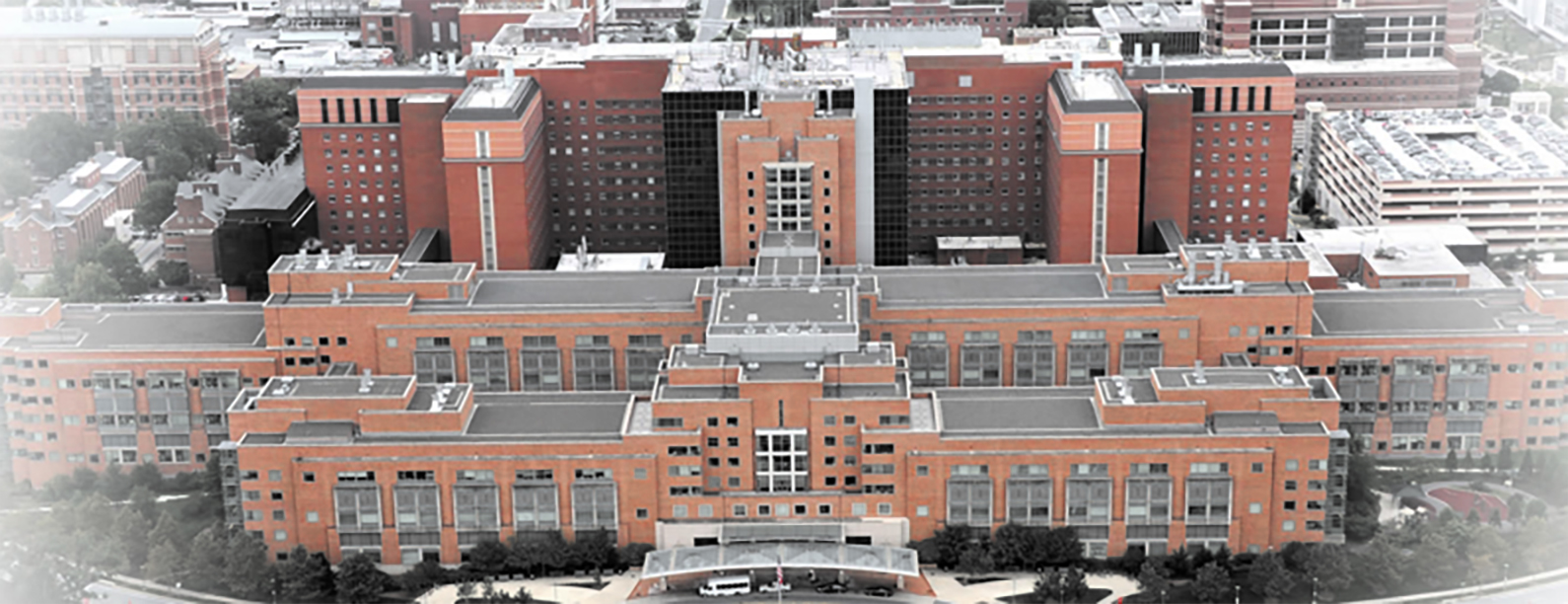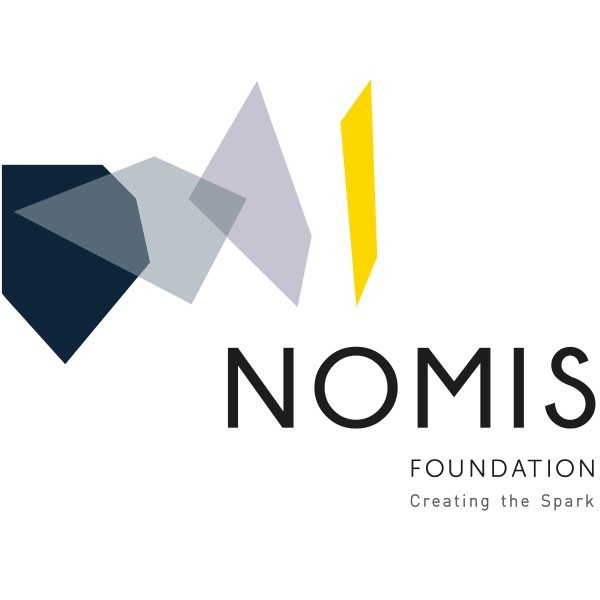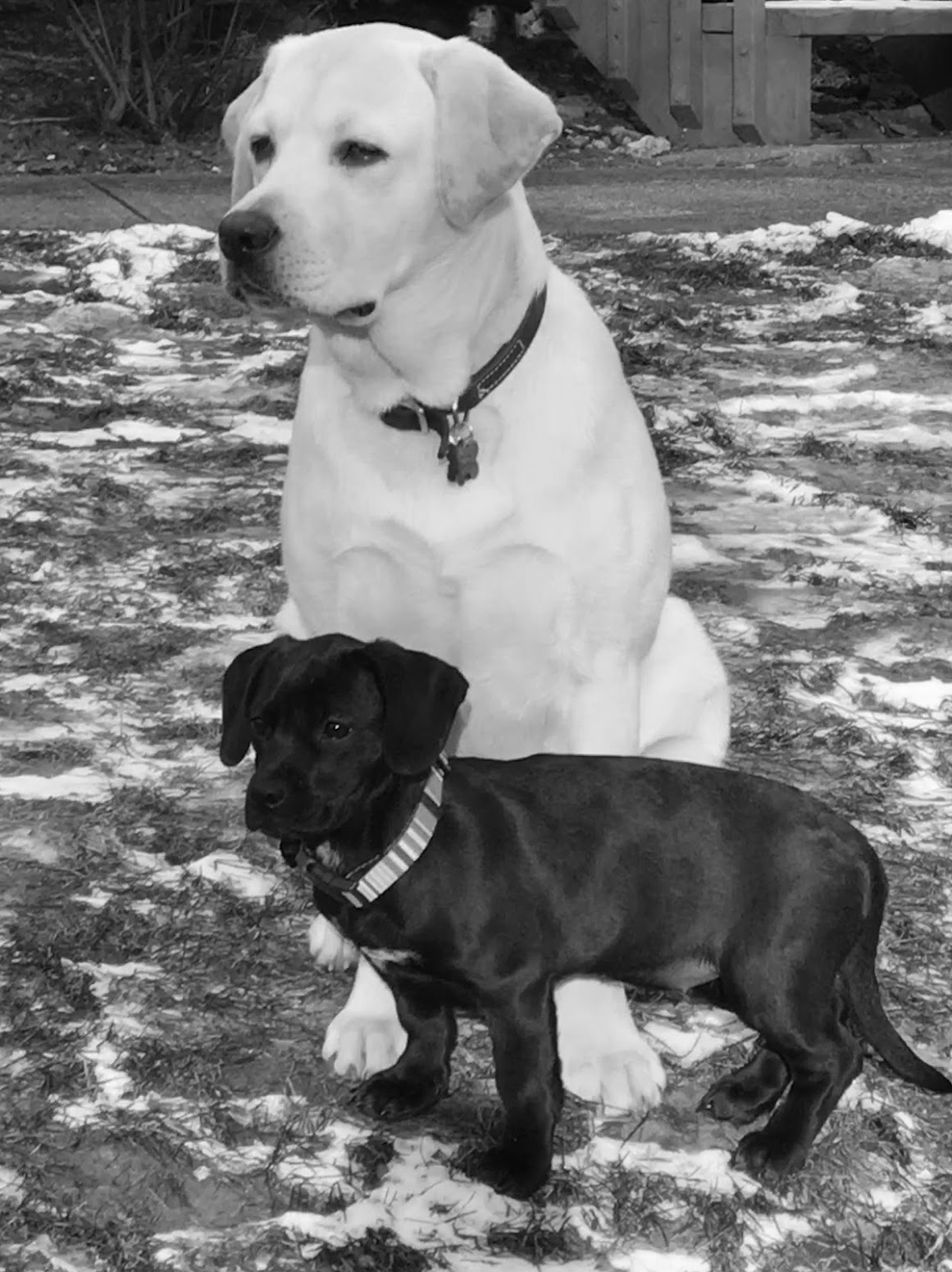05 Education and Bio
![]()
![]()

Education
- BA, Yale University
- MPhil, University of Oxford
- PhD, Harvard University
- Postdoc Research, Stanford University
- MD, Netter School of Medicine

View of Hillhouse Ave from the lab
(left to right: Math, CS, Engineering)
(left to right: Math, CS, Engineering)
Previous research
I worked as a scientist at the Human Nature Lab, directed by Nicholas A. Christakis at the Yale Institute for Network Science. The lab studies biology of human sociality using the tools of population genetics, behavioral experiments, network science, and large-scale field interventions to improve public health.
Other positions
I was pre-resident fellow in Neurosurgery at the Miller School of Medicine at the University of Miami and the Jackson North Medical Center, where I helped run the Neurosurgery service providing surgical and hospital care to brain and spine patients.
I was appointed Visiting Investigator at the Memorial Sloan-Kettering Cancer Center, where I worked in the Brain Tumor Center lab directed by Luis F. Parada in the Cancer Biology & Genetics Program.
I worked as a Fellow in the Neurosurgery Unit for Pituitary and Inheritable Diseases lab directed by Prashant Chittiboina at the National Institute for Neurological Disorders and Stroke (NINDS) at the National Institutes of Health (NIH)
I was appointed Visiting Investigator at the Memorial Sloan-Kettering Cancer Center, where I worked in the Brain Tumor Center lab directed by Luis F. Parada in the Cancer Biology & Genetics Program.
I worked as a Fellow in the Neurosurgery Unit for Pituitary and Inheritable Diseases lab directed by Prashant Chittiboina at the National Institute for Neurological Disorders and Stroke (NINDS) at the National Institutes of Health (NIH)

Surgical Neurology Branch at the NIH
Medical training
I obtained my MD from the Netter School of Medicine at Quinnipiac. I spent my first year as a physician providing neurosurgical care to patients in the Jackson Health System, one of the largest safety-net hospital systems in the United States, serving the Miami-Dade County. Followeing that, I am working as a surgical intern at the UCSF Department of Surgery in East Bay, proving surgical care at the Highland Hospital and the UCSF Benioff Children’s Hospital in Oakland. In 2027, I will be joining the Yale Department of Radiology and Biomedical Imaging as a Resident Physician.
In medical school, I co-founded Netgene, the school’s Genomics and Personalized Medicine Interest Group. I served on the Independent Student Analysis team as part of the Liasion Commitee on Medical Education (LCME) re-accrediation process. In 2021-22, I served as the President of the Netter Pride Alliance, the school’s sexual and gender minority group, Co-President of the Addiction Medicine Interest Group and Co-President of Netgene.
In medical school, I co-founded Netgene, the school’s Genomics and Personalized Medicine Interest Group. I served on the Independent Student Analysis team as part of the Liasion Commitee on Medical Education (LCME) re-accrediation process. In 2021-22, I served as the President of the Netter Pride Alliance, the school’s sexual and gender minority group, Co-President of the Addiction Medicine Interest Group and Co-President of Netgene.
Previous research
I did my postdoctoral research at Stanford University working on biochemistry of RNA splicing, epigenetics of brain tumor stem cells, and next-gen sequencing of induced pluripotent stem cells (iPSCs) we engineered epigenetically using synthetic modified mRNA (mod-mRNA) without changing the cell’s genome.
Research Grants Support
The NOMIS Foundation
Research GrantUsing Social Artificial Intelligence to Modify Collective Behavior in Realistic Networks
Christakis
(PI)
06/01/19 – 05/31/23
Role: Research Scientist06/01/19 – 05/31/23

The purpose of the study is to design and implement heterogeneous
AI-human systems, test them using the Human Nature Lab’s breadboard
experimental platform, and implement these systems in real-world social
networks to evaluate their effectiveness in promoting cooperation in standard
economic model interactions. My role on the project involves designing and
implementing behavioral economics experiments using Human Nature Lab’s online
experimental platform breadboard, both in online artificial social networks and
through “lab-in-the-field” experiments using face-to-face networks (mapped
using Human Nature Lab’s Trellis mobile photographic census platform).
The NOMIS Foundation
Microbiome Biology and Social Networks in the Developing World
Research Grant
Microbiome Biology and Social Networks in the Developing World
Christakis
(PI) 01/01/19 –
12/31/22
Role: Research Scientist

The purpose is to conduct a metagenomic microbiome study of 2,000 people
who share face-to-face village social networks in rural Honduras. We are
investigating the distribution of the human microbiome across social networks,
the reciprocal nature of human and microbial networks, and the role of both of
these types of networks on community health, prevalence of chronic conditions,
and spread of infections. My role on this project is taking a lead on the
design and implementation of metagenomic sequencing methods and GC-MS/MS and
HPLC-MS metabolomic profiling. I work on all aspects of the study, from initial
idea generation to study design and implementation, to computational
bioinformatics and statistical modeling, to manuscript writing.
Tata-Yale Research Alliance
Tata Sons Limited, Tata Consultancy Services, and Tata Chemicals
Master Collaboration and Research Agreement
Tata Sons Limited, Tata Consultancy Services, and Tata Chemicals
Master Collaboration and Research Agreement
Christakis
(PI) 04/20/16 – 04/19/21

The purpose of
the Master Collaboration and Research Agreement between the Tata Group and Yale
University is to establish a research and knowledge sharing collaboration
between Tata and Yale to build a world-class research program focused on
mutually agreed upon areas of interest. My work is on randomized controlled
trials of network targeting in field interventions and online behavioral
experiments on social networks using the Human Nature Lab experimental platform
breadboard.
The Bill and Melinda Gates Foundation
Exploiting Social Influence in Networks to Magnify Population-Level MNCH Behavior Change
Christakis (PI) 07/01/14 – 12/31/18
Role: Research Scientist, Lead Data Analyst

The purpose of the study is to
use detailed understanding of social network structure and function to identify
novel ways of targeting influential individuals so as to foster behavioral
cascades and population-level behavior change. This objective is achieved by
conducting a randomized controlled trial of network targeting algorithms,
deployed in a sample of 30,000 people across 172 villages in Honduras, with
maternal and neonatal care interventions.
National Institutes of Health (NIH) / National Institute on Aging
Award # 2P30AG034420-09
The Role of social Networks in Health and Well-Being
Role: Research Scientist,
Pilot Study Lead
Award # 2P30AG034420-09
The Role of social Networks in Health and Well-Being
Christakis (PI) 09/30/14 –
05/31/19

Our lab’s Roybal Center’s two
overarching goals of our work are (1) to ask significant questions about the
role of social networks in producing specific outcomes related to health and
well-being, and (2) to develop methods of answering such questions involving
real social networks in which behavioral information relevant to health and
wellbeing can be measured. My work includes pilot studies on network targeting
interventions, on social crowdsourcing for health testing/screening in
marginalized communities, and on microbiome metagenomics and social networks.
Awards
-
Cardiovascular Health Team Science Award, University of Miami (PI: Robert Starke, role: scientist, Project: “Single-cell transcriptional profiling of endothelial and immune cells involved in thrombogenesis causing large vessel occlusions in the brain.”)
- High Distinction in Global and Community Health, Netter School of Medicine
- Clark Medical Memorial Trust Award, Waterburry Medical Society
- May Diversity Scholarship (subinternship), Mayo Clinic, Rochester
-
Bugher Foundation Center of Excellence in Hemorrhagic Stroke Research, student researchship, Netter School of Medicine and Yale
- Cold Spring Harbor Laboratory Fellowship (travel)
-
Fellowship Traineeship, Summer Internship Program (SIP) for MD students, National Institutes of Health
-
Summer Research Fellowship, Frank H. Netter MD Scool of Medicine
-
Primary Care Fellowship, Frank H. Netter MD School of Medicine
-
Howard Hughes Medical Institutes MD Research Fellowship (Project: “Histone Modifications in Brain Tumor Stem Cells”)
-
Memorial Sloan-Kettering Cancer Center Medical Student Summer Fellowship Program
-
Frances G. Baird Medical Scholars Fellowship, Stanford University (Project: "Engineering RNA Cooperativity")
-
The Stanford Clinical and Translational Networking Program, Stanford University School of Medicine
-
Frances G. Baird Medical Scholars Fellowship, Stanford University (Project: "Metal Ions in RNA Catalysis")
-
Kaiser Fellowship Fund, Stanford University
-
Kolos Scholarship, Stanford University
-
Taubman Center Doctoral Fellowship, Harvard Kennedy School
-
Russell Sage Foundation Research Award for Behavioral Economics
-
Political Economy Fellowship, Harvard University
-
Inequality and Social Policy Doctoral Fellowship, Harvard Kennedy School
-
Econometric Society World Congress Bursary
-
Pre-Doctoral Fellowship, Center for Public Leadership, Kennedy School of Government
-
Laboratory in Comparative Ethnic Processes research workshop grant, UCSD
-
Abby and George O'Neill Fund Grant, Davis Center for Russian and Eurasian Studies
-
Travel Grant, Department of Government, Harvard University
-
Travel Grant, Institute for Quantitative Social Science, Harvard University
-
Dillon Fellowship, Harvard University
-
Graduate Student Fellowship, Harvard University
-
Sir John Hicks Award in Economic History, Department of Economics, Oxford
-
Department Fund Grant, Department of Politics and International Relations, Oxford
-
Hulme Grant, Brasenose College, Oxford
-
Clarendon Fund Award, University of Oxford
-
Markle Junior Research Fellowship, PCMLP, Socio-Legal Studies, Oxford
-
Fox International Fellowship, Yale University
-
European Union Grant, Yale University
-
Frank Patterson Prize, Yale University Political Science Department
-
Tristan Perlroth PRize, Yale Center for International and Area Studies
-
Trumbull College Class of '55 Fellowship, Trumbull College, Yale University
-
Strongman Memorial Scholarship
-
British Columbia Provincial Scholarship Canada Governor's General Bronze Medal
See my academic tree here.
My ERDŐS NUMBER is 5. Here is my proof, an easy extention based on the one by my PhD advisor Nicholas A. Christakis:
- Erdos P, Lovasz L, Simmons GJ, Strauss EG. Dissection graphs of planar point sets, in: A Survey of Combinatorial Theory (ed. S. Srivastava), Springer (1973), 139–149.
- Palla G, Lovasz L, Vicsek T, Multifractal network generator, PNAS 2010; 107: 7640–7645.
- Neda Z, Ravasz E, Brechet Y, Vicsek T, Barabási AL, Self-organizing processes: The sound of many hands clapping, Nature 2000; 403: 849-850.
- Hidalgo CA, Blumm N, Barabási AL,, Christakis NA, “A Dynamic Network Approach for the Study of Human Phenotypes,” PLoS Computational Biology 5(4): e1000353. doi:10.1371/journal.pcbi.1000353 (April 2009) MS#098
- Alexander M, Christakis NA. Bias and asymmetric loss in expert forecasts: a study of physician prognostic behavior with respect to patient survival. J Health Econ. 2008 Jul;27(4):1095-1108. doi: 10.1016/j.jhealeco.2008.02.011. Epub 2008 Mar 18. PMID: 18539349. [link]

Newton (top) and Rosalind (bellow)
